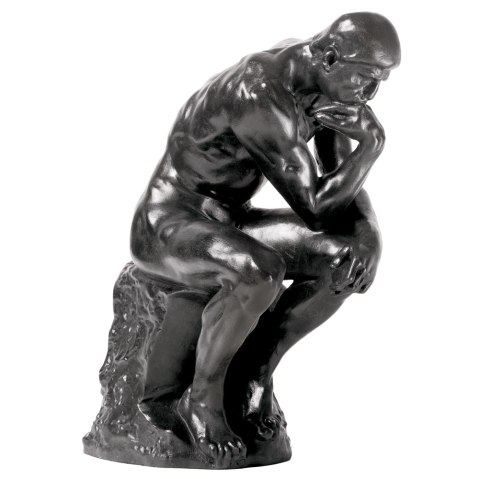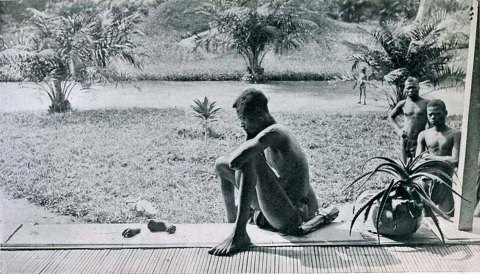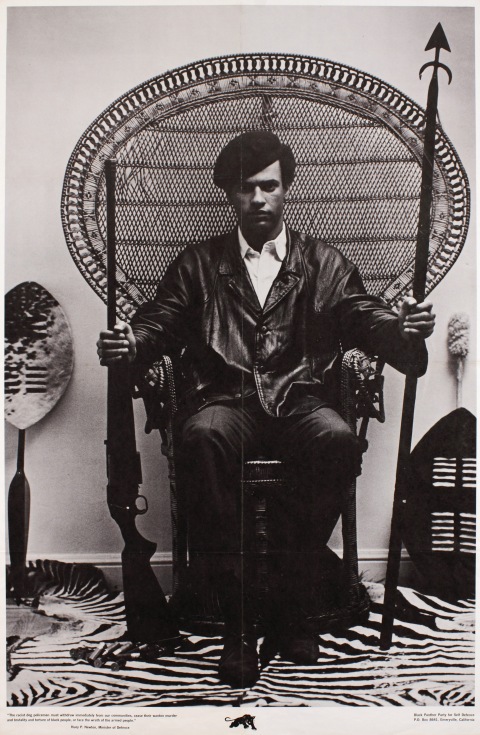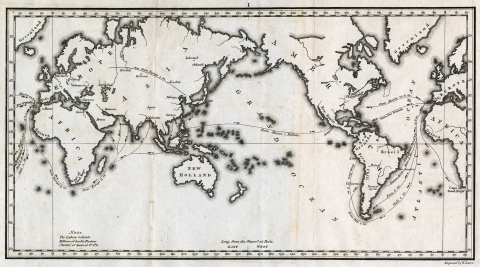Thirteen Factories – American Neoclassicism in Guangzhou
January 27, 2017 § Leave a comment

- Van Dyke, Paul A.; Mok, Maria Kar-wing (2015), Images of the Canton Factories 1760–1822: Reading History in Art, Hong Kong: Hong Kong University Press.
Anthony Bourdain (a placeholder)
January 24, 2017 § Leave a comment
I’m trying to finish an article on the Philippines… it is the first time I’ll be writing about OFWs … it’s a history of the mall in the Philippines. It will take me too long to explain the connection.
This is a placeholder — Anthony Bourdain’s essay on the Philippines. I don’t know that he ever got to the bottom of why “Filipinos were so damn caring.”
I will have to explain this later, but in short, because it’s their job. That doesn’t make it fake, truly caring is what makes the job bearable.
http://edition.cnn.com/2016/04/22/travel/anthony-bourdain-parts-unknown-manila-essay/
Thinking
January 14, 2017 § Leave a comment
Auguste Rodin’s “The Thinker,” Thomas Crawford’s “The Dying Chief Contemplating the Progress of Civilization,” and a photograph by Alice Seeley Harris, “Father stares at the hand and foot of his five-year-old, severed as a punishment for failing to make the daily rubber quota, Belgian Congo, 1904”



The photograph is by Alice Seeley Harris, the man’s name is Nsala. Here is part of her account (from the book “Don’t Call Me Lady: The Journey of Lady Alice Seeley Harris”): He hadn’t made his rubber quota for the day so the Belgian-appointed overseers had cut off his daughter’s hand and foot. Her name was Boali. She was five years old. Then they killed her. But they weren’t finished. Then they killed his wife too. And because that didn’t seem quite cruel enough, quite strong enough to make their case, they cannibalized both Boali and her mother. And they presented Nsala with the tokens, the leftovers from the once living body of his darling child whom he so loved. His life was destroyed. They had partially destroyed it anyway by forcing his servitude but this act finished it for him. All of this filth had occurred because one man, one man who lived thousands of miles across the sea, one man who couldn’t get rich enough, had decreed that this land was his and that these people should serve his own greed. Leopold had not given any thought to the idea that these African children, these men and women, were our fully human brothers, created equally by the same Hand that had created his own lineage of European Royalty.
Huey Newton – Material Solidarities
October 31, 2016 § Leave a comment

One of the items on display at the Black Panther show at OMCA is this wicker fanback chair. Huey Newton was building up a sort of cultual iconology around American blackness. Perhaps it was intentional, perhaps it was not, but those chairs were often made in the Philippines. We had several in my house growing up. More on this soon.
Antonio da Messina – St. Jerome in His Study
June 20, 2016 § Leave a comment

Full title: Saint Jerome in his Study Artist: Antonello da Messina Date made: about 1475 Source: http://www.nationalgalleryimages.co.uk/ Contact: picture.library@nationalgallery.co.uk Copyright © The National Gallery, London
Quoting at Length: Theodore Roosevelt on Corporations
April 11, 2016 § Leave a comment
The opposition to Government control of these great corporations makes its most effective effort in the shape of an appeal to the old doctrine of State’s rights. Of course there are many sincere men who now believe in unrestricted individualism in business, just as there were formerly many sincere men who believed in slavery–that is, in the unrestricted right of an individual to own another individual. These men do not by themselves have great weight, however. The effective fight against adequate Government control and supervision of individual, and especially of corporate, wealth engaged in interstate business is chiefly done under cover; and especially under cover of an appeal to State’s rights. It is not at all infrequent to read in the same speech a denunciation of predatory wealth fostered by special privilege and defiant of both the public welfare and law of the land, and a denunciation of centralization in the Central Government of the power to deal with this centralized and organized wealth. Of course the policy set forth in such twin denunciations amounts to absolutely nothing, for the first half is nullified by the second half. The chief reason, among the many sound and compelling reasons, that led to the formation of the National Government was the absolute need that the Union, and not the several States, should deal with interstate and foreign commerce; and the power to deal with interstate commerce was granted absolutely and plenarily to the Central Government and was exercised completely as regards the only instruments of interstate commerce known in those days–the waterways, the highroads, as well as the partnerships of individuals who then conducted all of what business there was. Interstate commerce is now chiefly conducted by railroads; and the great corporation has supplanted the mass of small partnerships or individuals. The proposal to make the National Government supreme over, and therefore to give it complete control over, the railroads and other instruments of interstate commerce is merely a proposal to carry out to the letter one of the prime purposes, if not the prime purpose, for which the Constitution was rounded. It does not represent centralization. It represents merely the acknowledgment of the patent fact that centralization has already come in business. If this irresponsible outside business power is to be controlled in the interest of the general public it can only be controlled in one way–by giving adequate power of control to the one sovereignty capable of exercising such power–the National Government. Forty or fifty separate state governments can not exercise that power over corporations doing business in most or all of them; first, because they absolutely lack the authority to deal with interstate business in any form; and second, because of the inevitable conflict of authority sure to arise in the effort to enforce different kinds of state regulation, often inconsistent with one another and sometimes oppressive in themselves. Such divided authority can not regulate commerce with wisdom and effect. The Central Government is the only power which, without oppression, can nevertheless thoroughly and adequately control and supervise the large corporations. To abandon the effort for National control means to abandon the effort for all adequate control and yet to render likely continual bursts of action by State legislatures, which can not achieve the purpose sought for, but which can do a great deal of damage to the corporation without conferring any real benefit on the public.
Filipino caregivers, Toronto
November 7, 2015 § Leave a comment
I can’t sleep. Something’s really been bothering me. I woke up and started googling “Filipino caregivers, Toronto.” Ever since I’ve arrived I’ve noticed an absolutely enormous number of Filipinos here. I hear Tagalog everywhere. There are Filipino nannies everywhere. After googling in the wee hours of this morning, I found out why. In 1992 Canada created a special “caregiver” immigration status, a category that granted permanent residency to caregivers after two years of live-in caregiving, after which they should at least theoretically be allowed to pursue the career of their choice. According to the Toronto Immigrant Employment Data Initiative, the overwhelming majority of live-in caregiver applicants are women, and are from the Philippines, although a small proportion of men, and Indian-born immigrants, have arrived in recent years.
This program was created because of a caregiver labor shortage—i.e. many Canadian women were entering the workforce full-time and need full-time care. The situation is so prevalent that many new condominium developments that I’ve seen actually advertise a “nanny unit.” The going rate for a live-in Filipina caregiver is about $1000-$2000 CAD a month, which makes live-in care cheaper than many daycare arrangements. 75,000 Filipinos were granted permanent residency status since 1992, however that’s only a fraction of the number of Filipinos who actually enter Canada as caregivers. Last year alone 23,687 Filipinos entered Canada under the program.
Sadly, the only reason I started looking this up is because this past week, I’ve felt this acute sense of xenophobia and suspicion directed towards me. The first time this happened was this Monday. We arrived home from a visit to New York about a week ago. I had to go to the mall to pick up a computer because mine died after spilling tea on it. My daughter, who is almost never cranky—unless her naps are off (in which case she will definitely be cranky) was cranky. Taking her to the mall was risky, I thought she might fall asleep in her stroller on the way there as she sometimes does, but no luck, and predictably she started throwing a tantrum. I tried everything to calm her down, but had to get out of the mall fast. I was waiting for the elevator and a woman there kept looking at me and then peeking in at the stroller at my hysterical baby. I didn’t think much of it, but she kept giving me this dirty look like I was inhumane for ignoring the cries of my baby. The interaction didn’t last long so I just brushed it off. The next day was different.
I was walking home from my daughter’s swim lesson, I was anxious as she only went down for a short time before the lesson (she usually has a 2 hour morning nap which she’s been resisting the past week). Predictably she threw a tantrum on the way home. I carried her for a bit so she’d stop crying, but decided I’d put her back in and try to walk her down—we were still about three quarters of a mile from home. We were about half a mile away when I decided I’d pick her up again, she wasn’t going down. As I was picking her up her toes briefly got stuck in the little bar of her seat, no big deal, it’s happened before, I just poked her foot out of it like I usually do. The following is an abbreviated version of the events as they actually transpired:
An old lady walking by peeked in at Zoe and said “oh no! your little foot! I think his foot is hurt” … at which point she reaches out her hand and cups zoe’s cheek.
I’m a little annoyed that she thinks she can just touch my child, but I calmly explain, “His foot isn’t hurt, he’s just tired” (I don’t usually correct gender, so people don’t feel awkward)…
old lady: “I think it is hurt, can you take off his shoe so I can look at it?”
me: “Um… no, he’s crying because he’s tired and I need to get him back for his nap.” I’m walking as fast as I can with a baby in my arms, pushing a stroller… I’m thinking “why does she feel she can just ask me to take my daughter’s shoe off for her???” I realize it’s because she thinks I’m Zoë’s nanny. She starts following me.
old lady: with as much of a threatening tone as she can muster, “Do you want me to call the police?”
me: “WHAT???? No, by the way, he’s a she, and she’s my daughter, and we’re going home”
old lady: “You’re the nanny, she doesn’t look like you!!”
me: “WHAT???? NOOOOO she’s my daughter and you’re racist for saying so, please stop following us and leave us alone!” I start walking faster, she starts pursuing me. I am fuming mad at this point (she’s followed me for about half a mile and we’re about 50 meters from home at this point, though I am trying not to lead her straight to my door) I start yelling out (we’re at an intersection with about 10 people waiting for a bus) “please someone get this woman to stop following me! she’s crazy and she won’t leave me alone”
old lady: “I’m concerned about the child that she’s taking care of” she announces to the small and confused crowd… at some point she started crying…
me: “you’re crazy, you’re crazy, you’re a crazy racist now leave me alone!” I’m starting to worry that my hysteria is starting to make me look like a crazy person yelling at a crying old lady—the optics are bad. I start walking again…
old lady: “you think I just want to waste my time?”
me: “apparently, you’re harassing us and we’re just trying to get home.”
old lady: “just because you say I’m crazy, doesn’t make me crazy, I’m not crazy, I’m a social worker and I can sense when something’s not right”
At this point I’m dizzy with frustration and hot with rage, and trying to stay calm because I am still holding my baby, who, at this point stopped crying and is looking at me quizzically. We’re now alone on the street, no one has helped me get rid of this lady. It’s been about half an hour since this whole thing started. I want to cry. I want to get home so I think the only way to get this woman to leave is if I show her Zoë’s foot. I’m so angry that I’m indulging this lady, but it’s the only way I can think of to extract myself from the situation. And THEN she says…”
“It’s the other foot!”
(It wasn’t)… but now I’m so so angry I can’t even… so I say I’m calling the police. I’m in Canada… so I don’t even know if 911 works, (starting to doubt myself now… a responsible parent would have emergency number programmed into their phone wherever they were). Anyway, I don’t really want to call the police, I just said it out loud in hopes that she’d leave. I call my husband instead (we’re about 25 meters away from home, but I don’t want her to follow me to my door). I tell Owen my location and that a crazy person is following me. He sounds panicked and hangs up the phone. I call him back thinking he sounds way too panicked. I tell him I’m not in any physical danger. He sounds relieved.
Owen comes five minutes later, picks Zoë up.
The woman asks if he is Zoë’s father, to which he replies yes and tells her that I am Zoë’s mother. We start walking away quickly, I think she calmly walks away at this point, though I don’t know since I didn’t bother looking back.
A quick note, my daughter doesn’t look like me. Her father is white, she is white like her father… one of those funny tricks of genetics. It’s never bothered me. It still doesn’t bother me, except that I find myself in this situation…
I spent the last couple of days trying to process what had happened. Yes, I was personally offended, I might even say traumatized, but then I realized (especially when I thought back to what happened at the mall Monday) that this was a much bigger problem than one crazy lady. Suddenly I feel like people are “looking out for me” and by that I don’t mean that they’re looking out for my safety, people out there—the community at large is making sure that I’m doing a good job of taking care of the child I have with me—MY CHILD. Now, I know that this is generally the case, if we saw an abusive mother on the street, we would all say something. BUT… I am now anxious about taking my child out onto the street if she is crying, which I often do because it sometimes calms her down. I fear now that if she is crying people will admonish me (with a look, or worse) for not being a good caretaker, whereas if I were white, if I looked like my daughter they might just assume that the baby is having a tough time, or that I was having a tough time calming her down. I feel like all of these people feel that they need to protect this baby from ME, her mother. It’s so alienating… I can’t find the words.
I tried drawing analogies for my husband.
“It’s like the way George Zimmerman followed Trayvon Martin, thinking that just because he was black he posed a direct threat to the neighborhood”… and then I think, magnitude of difference here is far too huge, am angered at myself for even thinking of this analogy.
Then I say… “It’s like when you’re a teenager and some drug store employee is following you because they think you’re about to steal some make-up” …and then I think no, now I’m trivializing my own experience, it felt so much more troubling than that.
I start thinking about the profuse types of racial marking that exist—the Muslim women in full Hijab at the airport, black men everywhere, chicanos in the back of house of every restaurant of the United States…
I come to the conclusion, or am rather am slowly coming to realize that what I’m feeling is particular to this very situation I’m finding myself in, understanding history, understanding present conditions is key here. My late night google session was about trying to find a way to understand the particular context I’m finding myself in at this moment. Then I found the aforementioned special “caregiver” immigration status. It seems that immigrants from the Philippines are the only people to which this “caregiver” status is granted.There are several reasons for this, perhaps the chief of them being that you have to pass a language exam in order to be granted the status. Many people don’t realize that English is the language of instruction in the Philippines, and has been so since the early 20th century. Only after I found out about this status did I understand the structural depth of this racial marking, which became all too real in my interactions this past week.
One of the problems of the caregiver status is that you have to live with the family sponsoring you—the caregiver essentially becomes an adult dependent. This is problematic on many levels. Just one problem is that it creates an opportunity for abuse. Now, abuse can range from unfair working conditions (i.e. underpaying, conditionally docking pay or asking a caregiver to work more than 12 hours) to substandard living conditions (many nanny units are often placed in basements, don’t have windows, and certainly almost always lack privacy features like their own kitchenette or bathroom), to verbal, psychological and physical abuse. If the family is unhappy with the caregiver’s service, not only are they out of the job, they are also homeless. There are far too many cases of abusive families out there and caregiver abuse is far too under-reported. There are very few resources for abused caregivers. Not only does this dependency give rise to a sort of paternalism or feeling of guardianship within the home—it also gives rise to a sort of socialized paternalism directed specifically at Filipinas. They are held to an impossible standard of care. As any mother knows—babies cry, we can’t expect Filipina nannies to wave a magic wand and produce a completely content baby.
The situation that I found myself in also made me reframe some of the interactions I recently had at the gym where there are two Filipina caregivers working at the in-gym daycare. The first two times I picked Zoë up she was crying. I didn’t think much of it. When a friend of ours in New York first started babysitting Zoë, she cried all the time until Zoë got used to her. Now Zoë loves her. But when we picked her up the two women were super defensive about the crying. I tried to assuage their fear, telling them that it was fine. That I know that they did their best. I’m imagining that because of their reaction that parents don’t always treat them this way.
One very important dimension of this problem is that it follows on the heels of a feminist “breakthrough”—Canadian women are ever so steadily climbing towards equal representation in the workforce. The problem, however, as Alexandra Kollontai, the bolshevik feminist realized long ago… is that this “equality” is built on the backs of their proletariat sisters. In Kollontai’s words…
“The feminists seek equality in the framework of the existing class society, in no way do they attack the basis of this society. They fight for prerogatives for themselves, without challenging the existing prerogatives and privileges (not afforded to others). We do not accuse the representatives of the bourgeois women’s movement of failure to understand the matter; their view of things flows inevitably from their class position. …”
Though Kollontai did not blame the feminists of America (she is responding here directly to the work of Mary Wollstonecraft), can we continue to leave ourselves blameless for not understanding the new racial and class barriers we are building just as we break down the gender barriers that once held us back? I say “ourselves” because despite being Filipino, I am firmly embedded within a privileged class—I, in fact grew up with a Filipina nanny. My family was able to earn what it earned largely because Nelia looked after us as children.
I was feeling so proud of Justin Trudeau —yeah dude!! It is 2015!!! But now this is feeling all tainted, now I’m wondering how many women in his cabinet have live-in caregivers… It reminded me of a conversation that my sister-in-law (who has a JD and is a stay at home mom), was having with her friend, who was urging her to go back to work. She said she didn’t want to “outsource” what she thought to be her most important job. Outsourcing, I think is the right term here—with all of the global dimensions that that term entails. One of the huge problems I have with this is that this army of caretakers are barred from many of the privileges of full citizenship. In Canada they can only stay in the country if they are essentially in the custodial custody of a Canadian family.
Again, as I am starting to realize… I am not really the victim here, except as a witness to the particular xenophobic social dimension that is the outcome of this larger structural issue. To be continued…
The Complete Project and Unfinished Architecture or Keynesian Economics vs. Growth Theory
April 2, 2014 § Leave a comment
Wanted to put a placeholder here after Arindam Dutta’s talk… on new temporalities. It was helpful for me in that it was the opposite of what I’m looking at… which was all about short term economics, the pragmatics of present conditions and the role of projects in shoring up economic confidence.






